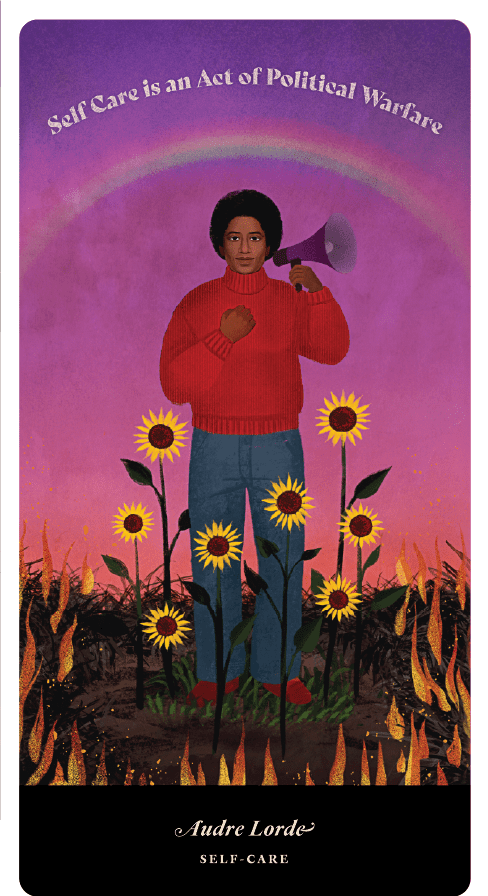Audre Lorde | Self-Care Is an Act of Political Warfare 1934 NEW YORK CITY 1992 US VIRGIN ISLANDS
Audre Lorde is a thinker of self-care. She asks us to prioritize our needs and tend to our pain. For Lorde, self-care is not an indulgence—it is a necessary means of survival. Social expectations of happiness cover over individual discontentment. There is plenty to be angry and fearful about if you live in a world that challenges your very right to survival. Naming and expressing your trauma is a radical act of self-care. Lorde asks you to disrupt and disturb the quiet instilled by those who try to silence your struggles and render you invisible. Don’t worry about ruining the mood by pointing out injustices, and be careful not to let others dismiss your pain by calling it rage. Your anger is rich with information. Translate your fear and anger into clarity and understanding by expressing them. Use your anguish and pain to find or form communities that support your struggles. Your silence will not protect you. Ask for support, and fiercely love those who share your resilience and passion for growth.

